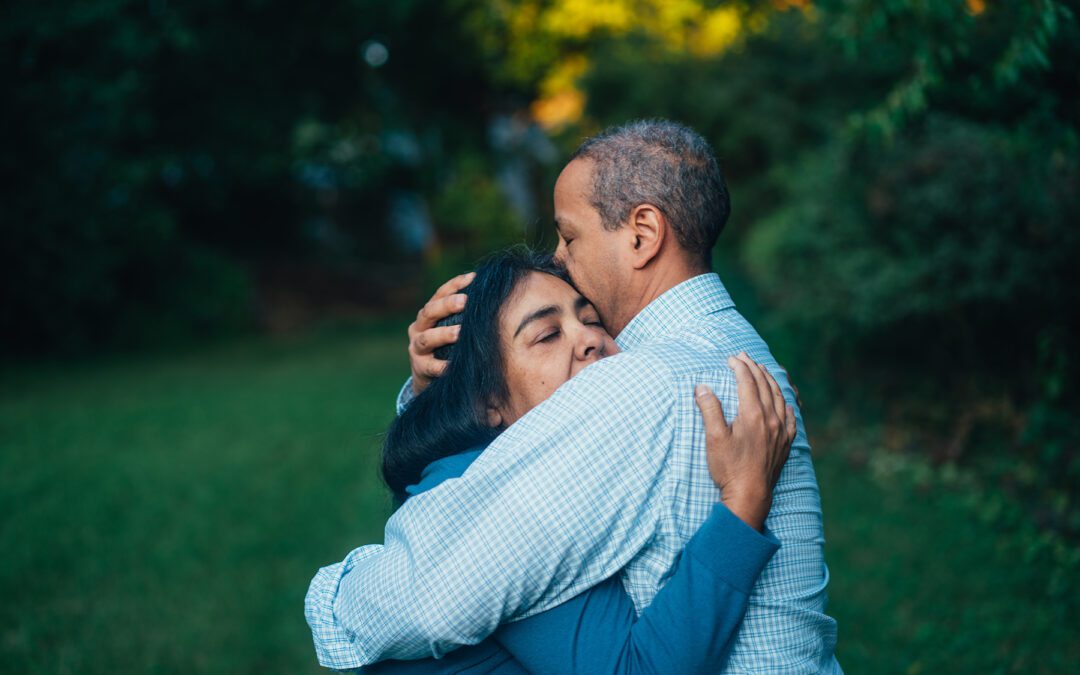Key to Forgiveness. Willingness to Forgive.
The key to forgiveness is a willingness to forgive. Just saying “I forgive you” doesn’t rid you of the anger. Think about it: How often have you seen someone who says he’s forgiven someone else and is still riddled with anger and resentment at mentioning that person’s name? Someone who, at every chance he gets, makes hurtful comments aimed at the very person he claims to have forgiven, despite being quick to tell you he’s ignored the person? In these cases, saying “I forgive you” is like making an empty promise or saying “I love you” when you don’t mean it. If solid action doesn’t accompany the words, the words mean nothing.
So how do you begin to forgive?
Following is a step-by-step list of suggestions to help you genuinely forgive:
Step 1: Pray for an open heart – Even a tiny opening can let forgiveness in. Praying to be willing to forgive often creates a space to allow forgiveness to step in.
Step 2: Read inspirational materials – If prayer is too far out of your reach, or even if it’s not, read material that will soften your heart. Sometimes just letting in positive information will create a change of thinking.
Step 3: Attempt to understand – Understanding is the foundation of love, and love is the basis for gratitude. Grasping why people behave as they do can sometimes help us forgive them. Sometimes, because of someone else’s enlightened self-interest, we get hurt. Unfortunately, when people are hurt, they lash out and hurt others. But the truth is that rarely does anyone start out wanting to hurt us. It’s not personal; it’s just the way it is. This by no means justifies their behavior; it simply explains it.
Step 4: See your part – Be open to seeing the role you played in the situation. This is equally as difficult as Step #3, because we don’t recognize our part more often than not. In our minds, we are always the good guy being tormented and abused by the big bad guy. But interpersonal problems almost always involve two or more people. Once you’re able to see past your hurt and anger to how you might have contributed to what happened, you’re better able to understand that they, like you, are human and make mistakes.
Step 5: What you put out is what you get back – Understand that as long as you are unwilling to forgive others, you limit the possibility that others will forgive you. The Universal Law of Karma is alive and well.
Step 6: Be grateful – Write a gratitude list of the things you like about the person or that she or he did well. This might take some effort but try. Writing this list creates a space for humanity to step in. It is hard to hold on to anger when you see the other person as having done something right.
Lastly, write a letter to the person expressing your feelings. Write about what hurt you, how they betrayed your trust, how they didn’t care for you. Don’t worry; you won’t be sending it, and no one but you will see it, so write exactly how you feel. After that, in your journal, write the payoffs for making peace with this person.

Francine D. Ward
Attorney-At-Law, Author, Speaker
Follow Francine:
Don’t miss Francine’s Latest Blogs:
- Sweepstakes ScamsSweepstakes Scams. The Federal Trade Commission (FTC) has settled with several operators of a sweepstakes scam. The scam bilked consumers out of millions of dollars. Included in the settlement agreement,… Read more: Sweepstakes Scams
- Incapacity PlanningIncapacity Planning. Incapacity is an unexpected wrinkle in your estate plan. I am a planner. I make plans, I like making plans, and sometimes my plans go awry. Despite any… Read more: Incapacity Planning
- Publishing contractsPublishing contracts The publishing contract is an agreement that defines the relationship between an author and her publisher. Publishing contracts typically contain elements that speak to territory, rights, ownership, financial… Read more: Publishing contracts
- What is a Habit?As we enter springtime, you may feel far away from your New Year’s resolution. That may be because of the success rate of NYE resolutions. In fact, January 17 is… Read more: What is a Habit?
- Common Contract MistakeCommon Contract Mistake #1. Not Having Written Agreements with EVERYONE You Do Business With. Common contract mistake. Without question, the most common contract mistake is not having the terms of… Read more: Common Contract Mistake











